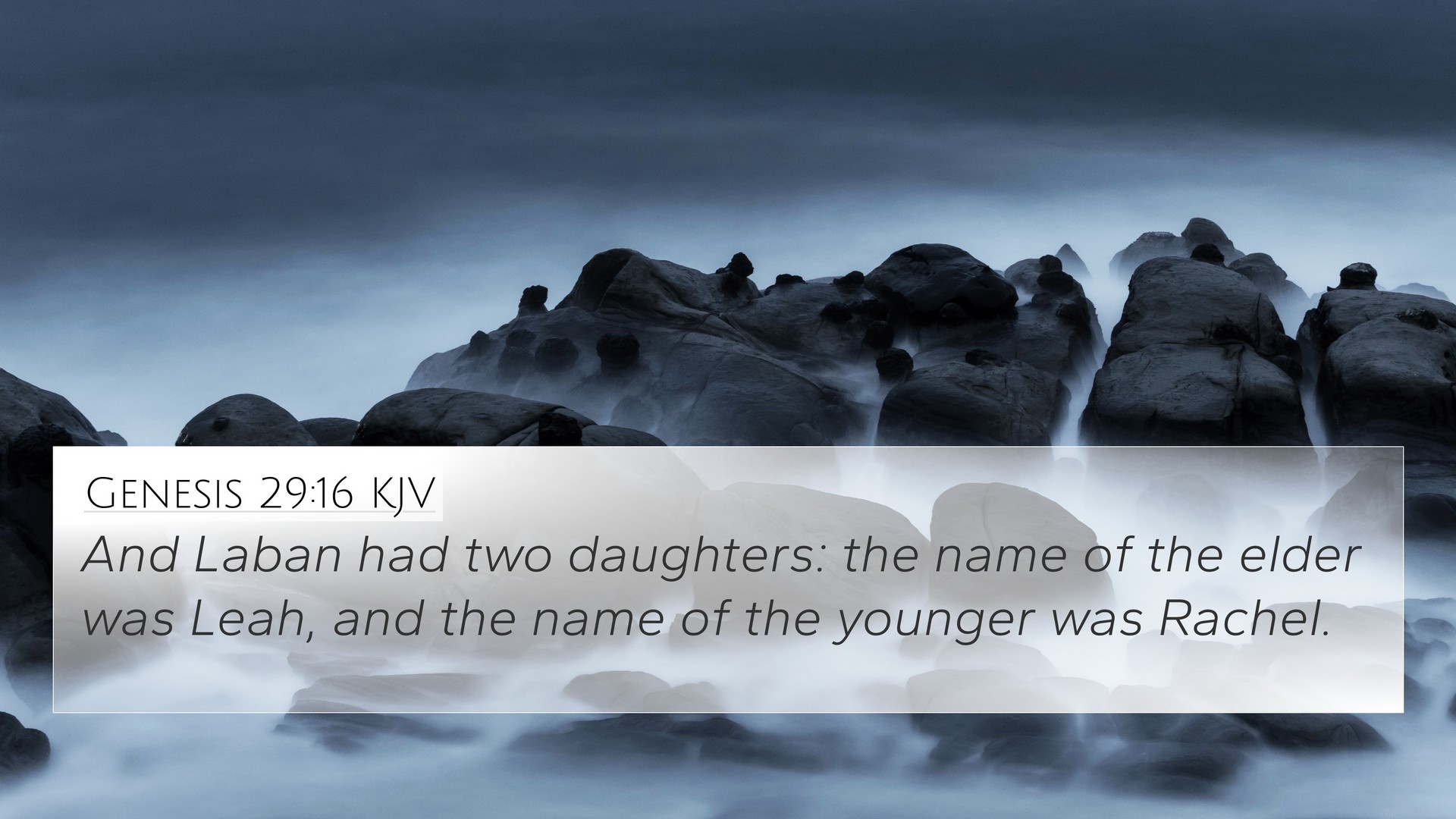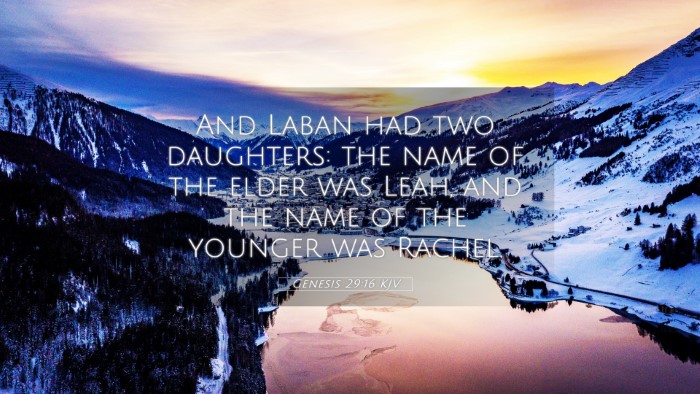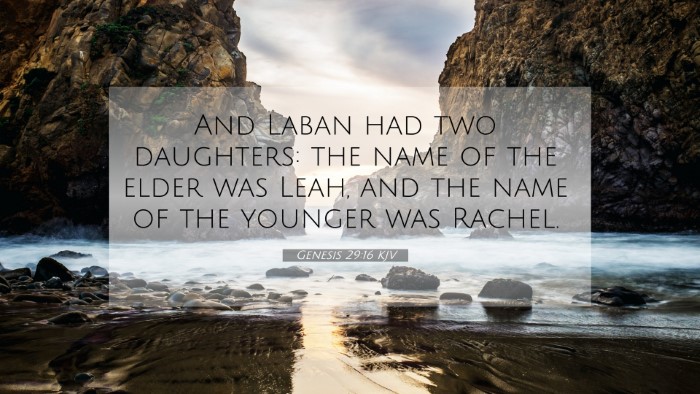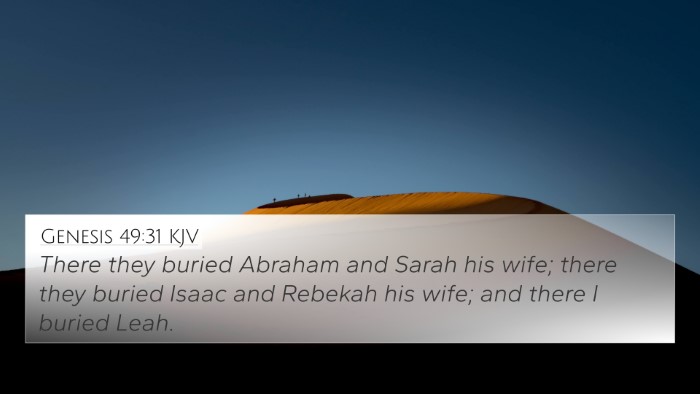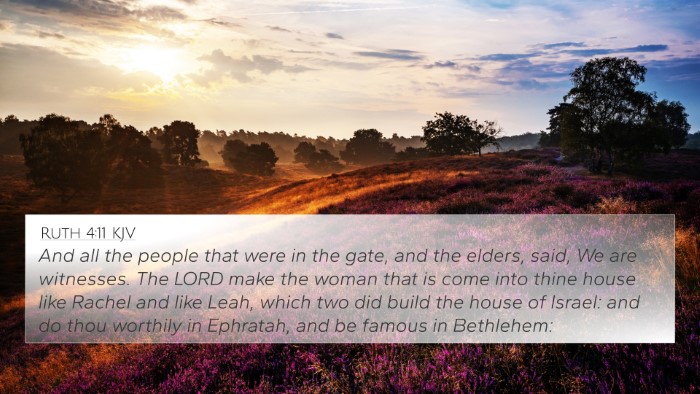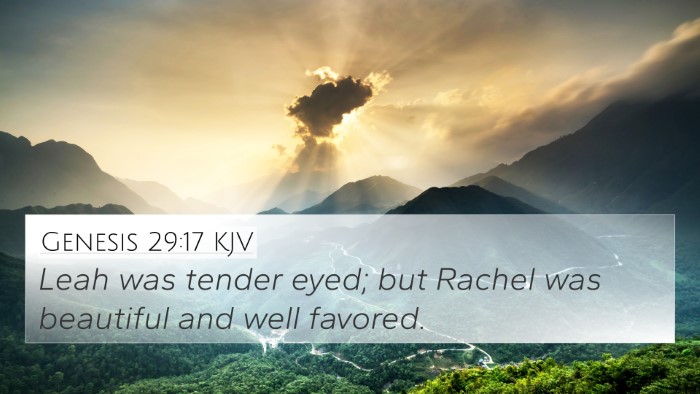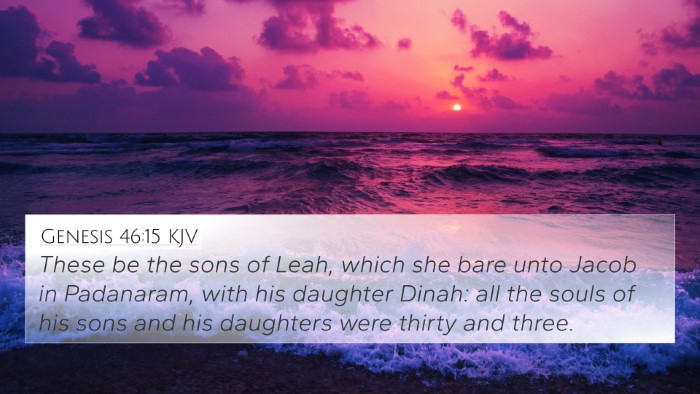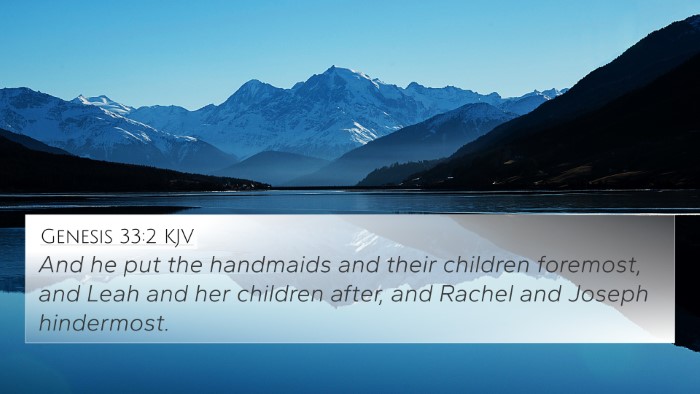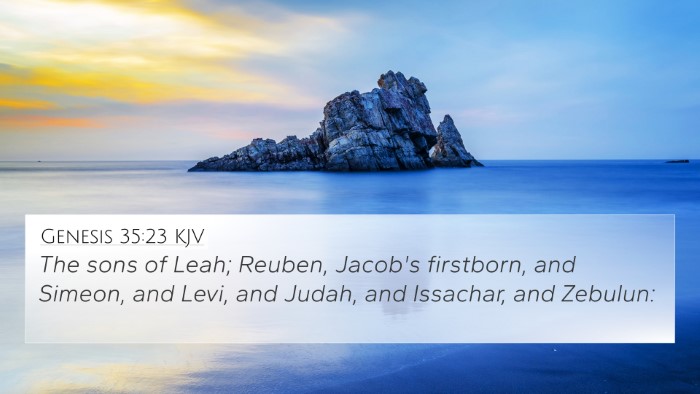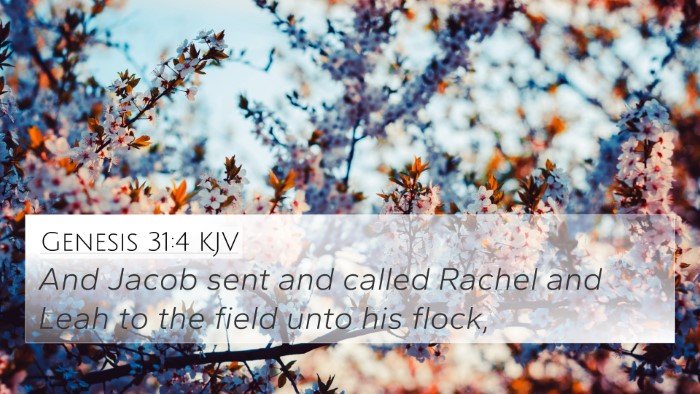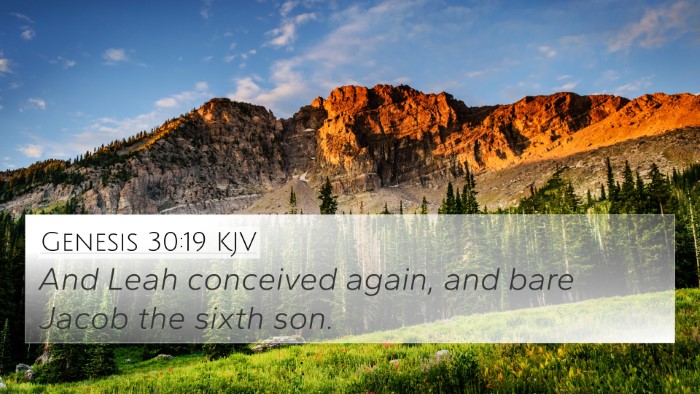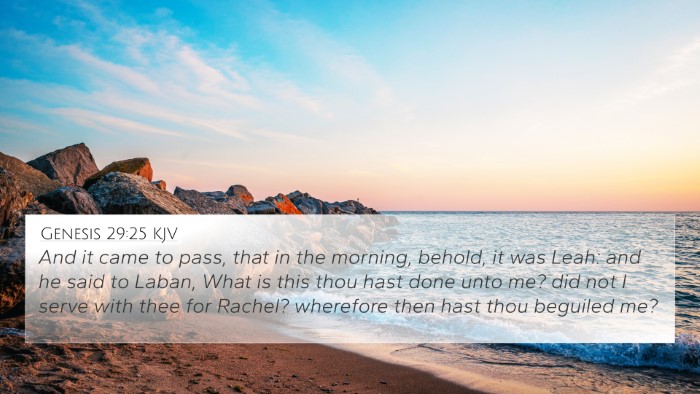Understanding Genesis 29:16
Genesis 29:16: "Now Laban had two daughters: the name of the elder was Leah, and the name of the younger was Rachel."
Contextual Overview
The introduction of Laban's daughters, Leah and Rachel, sets the stage for the complex family dynamics that will unfold in the narrative. This verse highlights their identities and foreshadows the significant roles they will play in the biblical account.
Commentary Insights
Matthew Henry's Commentary
Matthew Henry notes that the naming of Laban's daughters signifies their characteristics and future importance in the lineage of Israel. He emphasizes that Leah, being the elder, represents a sense of duty and obligation, while Rachel epitomizes the love and desire of Jacob.
Albert Barnes' Commentary
Albert Barnes elaborates that the mention of both daughters serves to underscore the narrative's contrast. Leah is described as having tender eyes, implying a certain lack of physical appeal compared to the more beautiful Rachel. This detail is instrumental in understanding Jacob’s preference and the emotional conflicts that arise within the family.
Adam Clarke's Commentary
Adam Clarke reflects on the significance of family lineage in biblical tradition. His commentary points out that both daughters will be central to the establishment of the tribes of Israel, thereby highlighting the providence of God in using imperfect human relationships to fulfill divine promises.
Key Themes and Connections
This verse opens several thematic connections, which can help readers understand broader biblical narratives:
- Covenantal Relationships: The families' structure and dynamics highlight God's covenant with Abraham's lineage.
- Love and Sacrifice: Jacob's preference for Rachel illustrates the complexities of love often depicted in the Bible.
- Divine Providence: The selection of Leah and Rachel illustrates God's hand in guiding future generations.
Bible Verse Cross-References
Genesis 29:16 connects with several important verses:
- Genesis 29:18: "Jacob loved Rachel; and said, I will serve thee seven years for Rachel thy younger daughter."
- Genesis 30:1: "When Rachel saw that she bare Jacob no children, Rachel envied her sister; and said unto Jacob, Give me children, or else I die."
- Genesis 35:23: "The sons of Leah; Reuben, Jacob's firstborn, and Simeon, and Levi, and Judah, and Issachar, and Zebulun."
- Genesis 31:4: "And Jacob sent and called Rachel and Leah to the field unto his flock."
- Exodus 6:23: "And Aaron took him Elisheba, daughter of Amminadab, sister of Nahshon, to wife; and she bare him Nadab and Abihu, Eleazar and Ithamar."
- Matthew 1:2-16: The genealogy of Jesus Christ, which includes the lineage of Jacob through these daughters.
- Hosea 12:3-4: Reflects on Jacob's wrestling and highlights his connection to the lineage through Laban’s family.
Thematic Bible Verse Connections
Understanding Genesis 29:16 can be enriched by recognizing its thematic connections within Scripture:
- Exploration of love: The dynamics between Leah and Rachel reflect the complexities of love and rivalry often present in biblical stories.
- Divine plans and human actions: This passage serves as a reminder of how God's plan unfolds despite human designs, a common theme throughout the Bible.
- Family and legacy: The importance of family lineage noted here resonates through many biblical narratives, emphasizing the impact of familial ties on identity.
Conclusion
Genesis 29:16 introduces characters central to the formation of the Israelite tribes and sets up a narrative rich with themes of love, rivalry, and divine providence. By utilizing tools for Bible cross-referencing, scholars and readers can traverse the connections between verses to gain deeper insights into God's unfolding narrative throughout Scripture.
